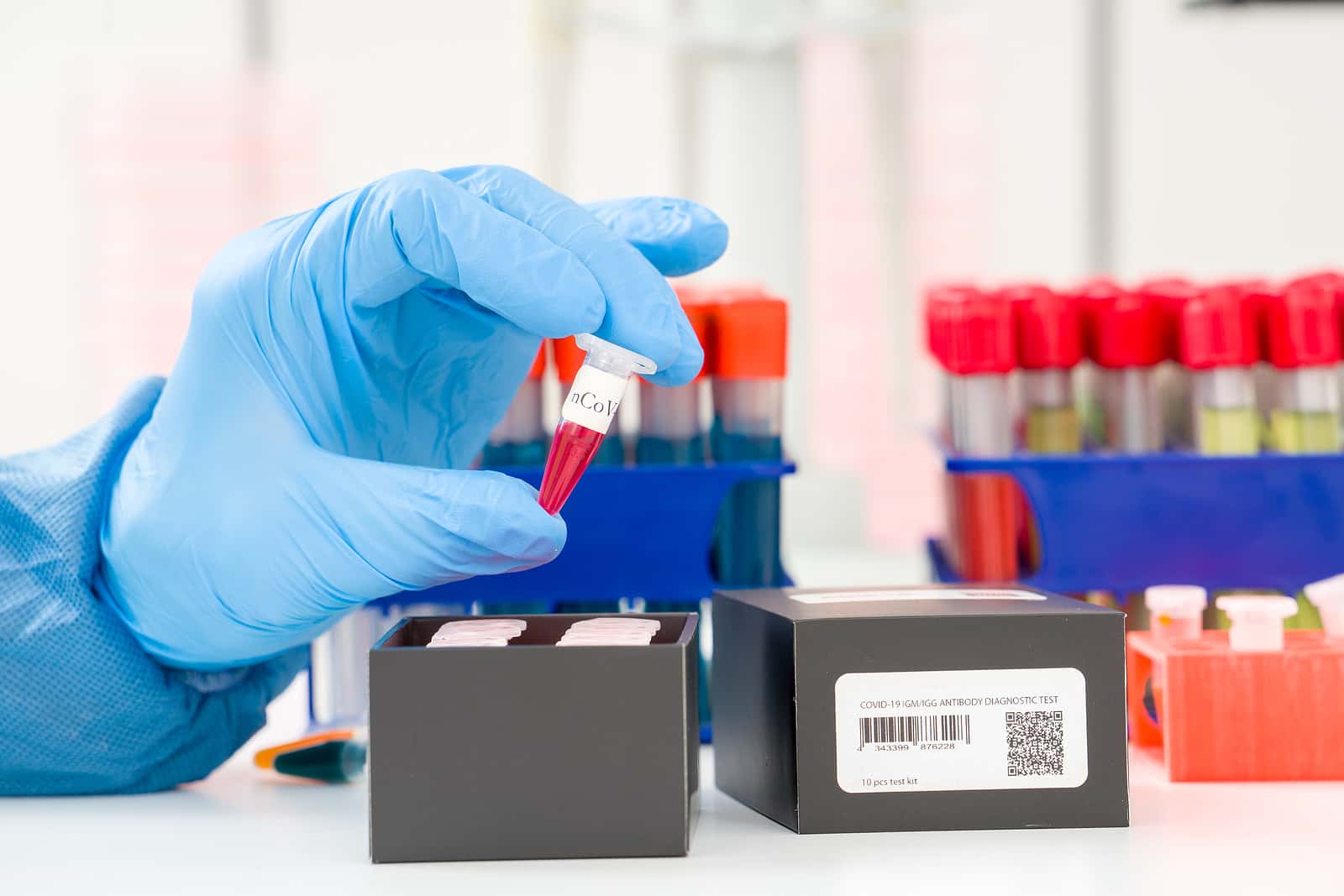
After many months of widespread infection, public health experts expect to see COVID-19 antibodies increasing in the population at large. After all, antibodies are a marker for past infection. As more and more people recover from this coronavirus, the rate of antibodies in the population should climb. Instead, a large British study has found the prevalence of IgG antibodies to this coronavirus have been dropping (MedRxiv, Oct. 27, 2020).
Is the Prevalence of COVID-19 Antibodies Increasing or Diminishing?
British scientists are reporting that antibodies to COVID-19 apparently fade with time. They completed three surveys between June and September to assess prevalence. For this research, more than 365,000 people submitted a finger-prick blood test designed to detect IgG antibodies. A positive result on this type of test indicates past infection with SARS-CoV-2.
Over three months, between June and September, the proportion of people with positive tests went from 6% down to 4.4%. The prevalence of COVID-19 antibodies was higher in London and among younger people. This suggests that the proportion of people who had survived an infection was higher in those populations. The lowest prevalence was among individuals 75 years old and above. They also had the biggest drop in antibodies between June and September.
Why Does This Matter?
The investigators are concerned about this apparent drop in antibody levels in the British population. No one knows whether a reduction in COVID-19 antibodies leaves people more vulnerable to a second infection of the virus. However, that is a possibility.
What About Herd Immunity?
In addition, a lower prevalence of antibodies indicating immune response would create concerns regarding the concept of herd immunity. If these antibodies wane over time, a population might not reach levels of at least 60% or 70% of people with some protection from the virus. Uninfected individuals won’t have any passive protection unless the population as a whole is unlikely to catch and hence spread the virus.
Citations
- Ward H et al, "Declining prevalence of antibody positivity to SARS-CoV-2: a community study of 365,000 adults." MedRxiv, Oct. 27, 2020.

